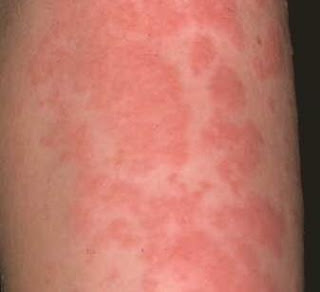Food allergy
or food intolerance affects nearly everyone at some point. When someone has an unpleasant reaction to
something they ate, they often think that they have an allergy to the food. Food allergy is an abnormal response to food
that is triggered by a specific reaction in the immune system and expressed by
certain symptoms. Food intolerance is
also an abnormal response to food. Its
symptoms can resemble those of food allergies however food intolerance is fare
more prevalent and is triggered by several different mechanisms that are
distinct from the immunological reaction responsible for food allergy. Anyone with a food allergy must attempt to
identify and prevent them because these reactions may cause devastating illness
and potentially be fatal.
Diagnosing a
food allergy can be a challenge for most doctors. First the doctor must determine if the
patient is having an adverse reaction to specific foods. The doctor makes this assessment with the
help of a detailed history from the patient, the patient’s dietary diary, or an
elimination diet. The doctor then
confirms the diagnosis by the more objective skin tests, blood tests, or food
challenges. The dietary history is the
most important diagnostic tool. The physician interviews the patient to
determine if the facts are consistent with a food allergy. If the patient’s history, dietary diary, or
elimination diet suggests that a specific food allergy is likely, the doctor
will then use tests, such as skin tests, blood tests, and a food challenge,
which can more objectively confirm an allergic response to food.
Some people
have an allergic reaction to a food that is triggered by exercise. As the body is stimulated by exercise, a
person with an exercise induced food allergy may feel itchy and
lightheaded. In more severe cases,
reactions such as hives or anaphylaxis may occur. Not eating for a few hours prior to
exercising may help prevent this problem.
Some fresh fruits and vegetables may also trigger a mild allergic reaction
that causes the mouth to tingle or itch.
This is called cross-reactivity in which the proteins in fruits and
vegetables cause the reaction because they are similar to allergy causing
proteins found in certain pollens. Most
cooked fruits and vegetables generally do not cause cross-reactive oral allergy
symptoms.
Food allergy reactions can vary from person to person.
Some reactions can be very mild and only involve one part of the
body. Other reactions may be more severe
and involve more than one part of the body.
Reactions can occur within a few minutes or up to a few hours after
contact with the food. A serious
allergic reaction with widespread effects on the body is known as
anaphylaxis. This sudden and potentially
life threatening allergic reaction involves two or more body areas. In addition, there may also be swelling of
the airway, serious difficulty with breathing, a drop in blood pressure, loss
of consciousness, and in some cases, even death. The primary caregiver will look for any other
condition that could cause the symptoms.
If the doctor suspects a food allergy, the patient will likely be
referred to an allergy specialist, who will ask in depth questions, perform a
physical exam, and perform tests to help make a diagnosis.

No comments:
Post a Comment